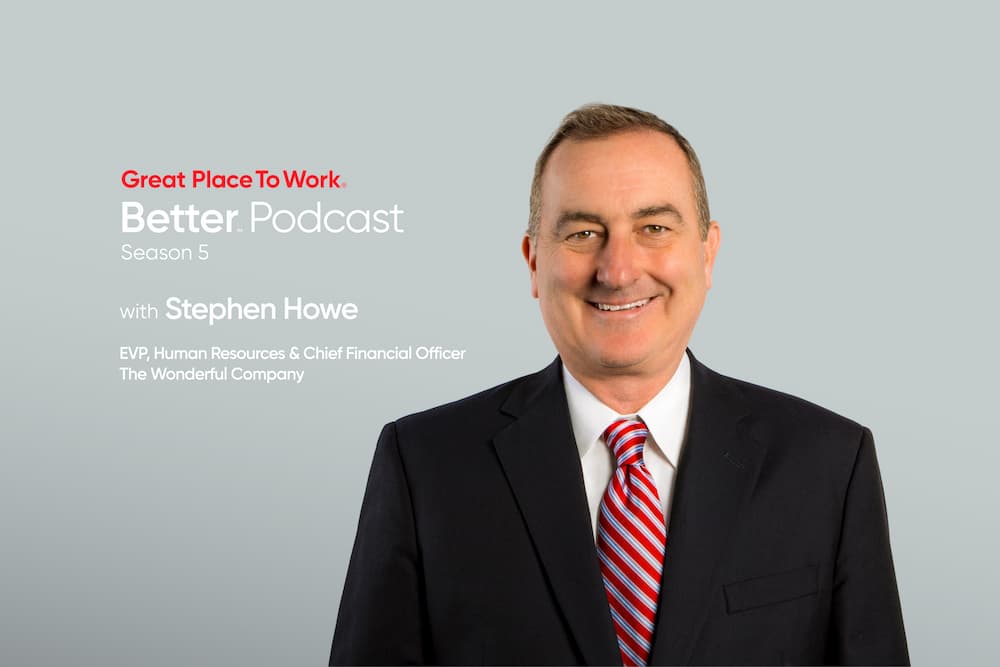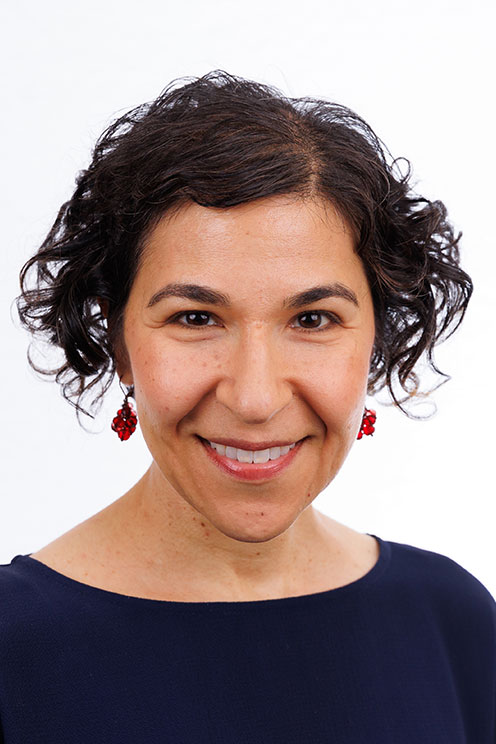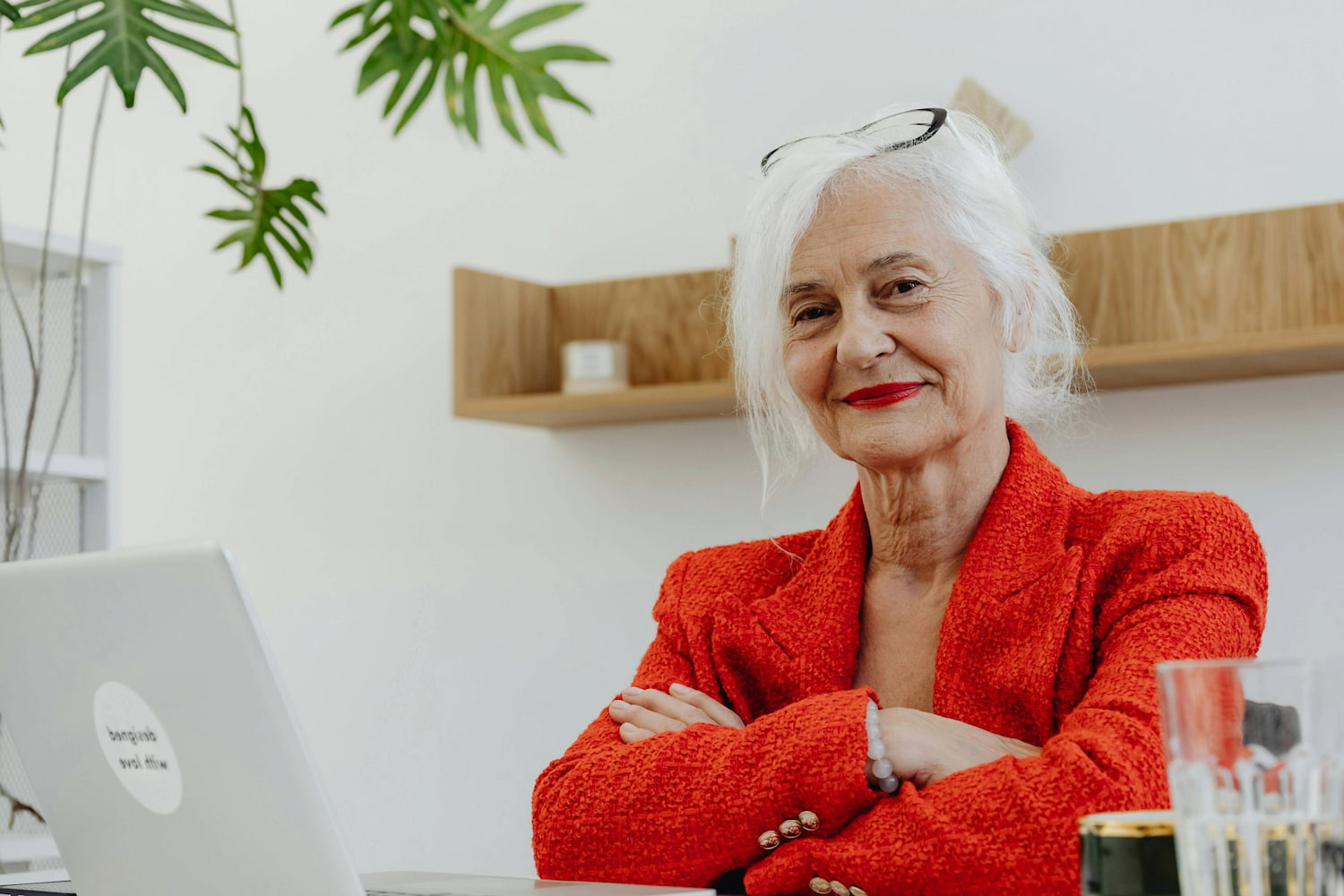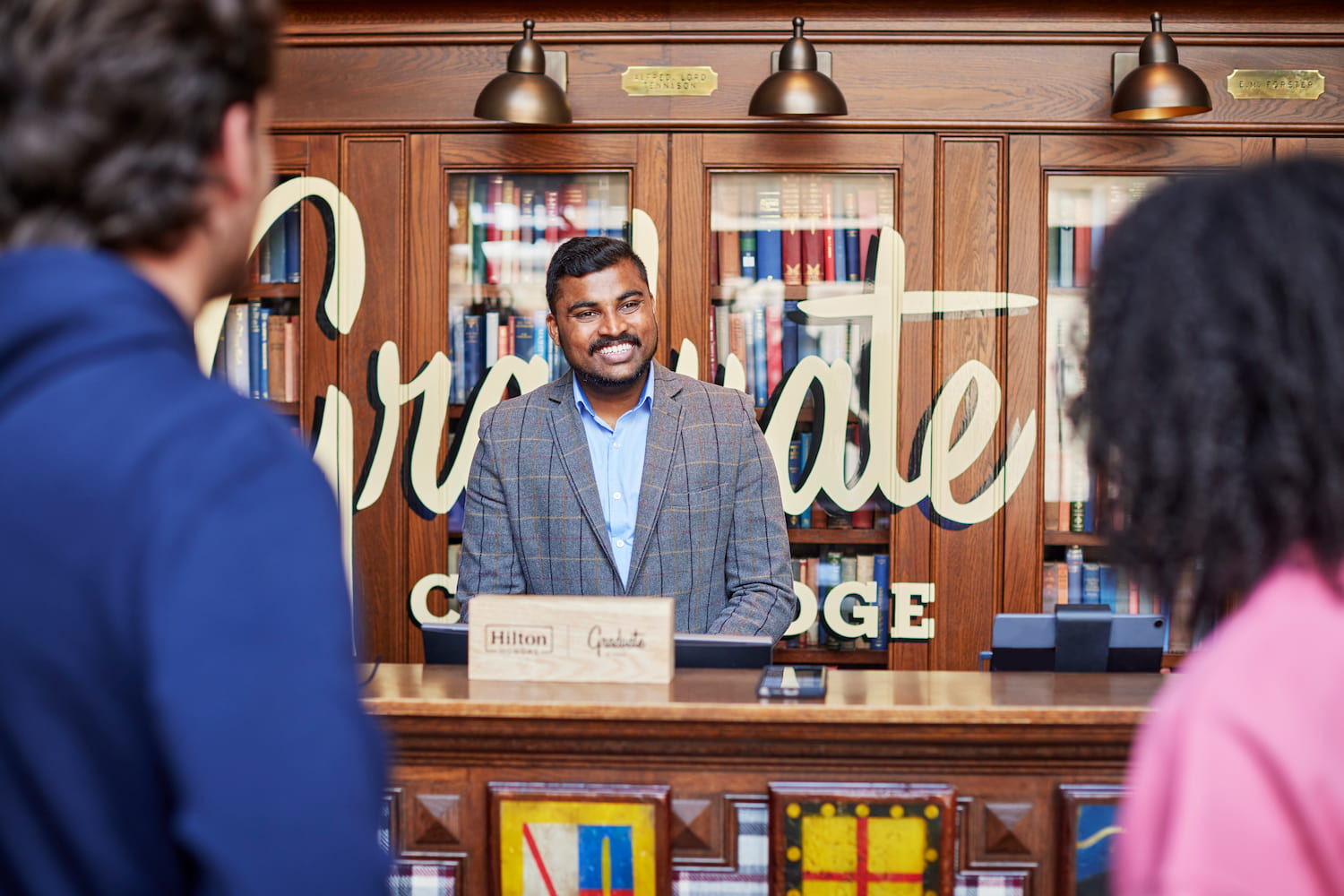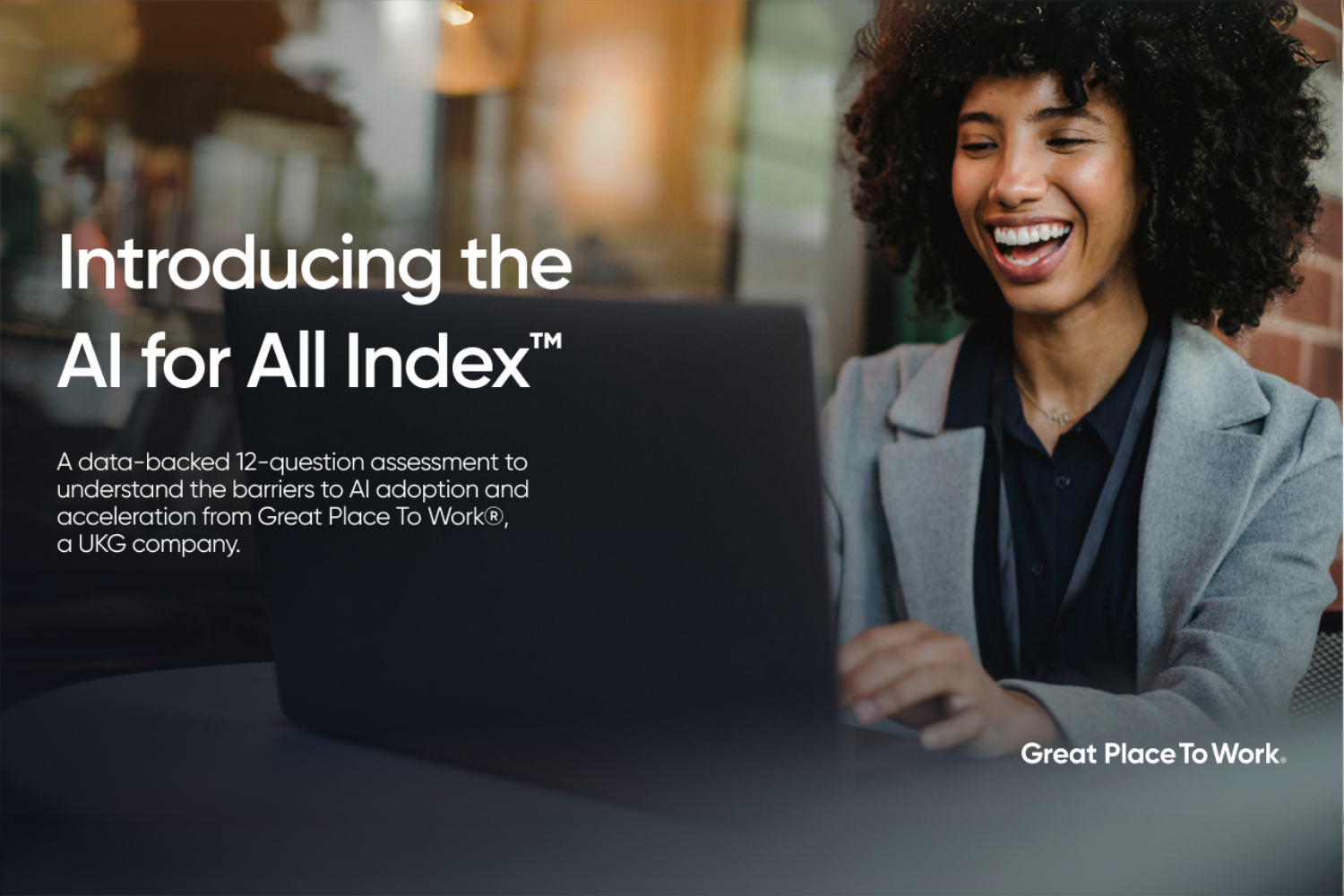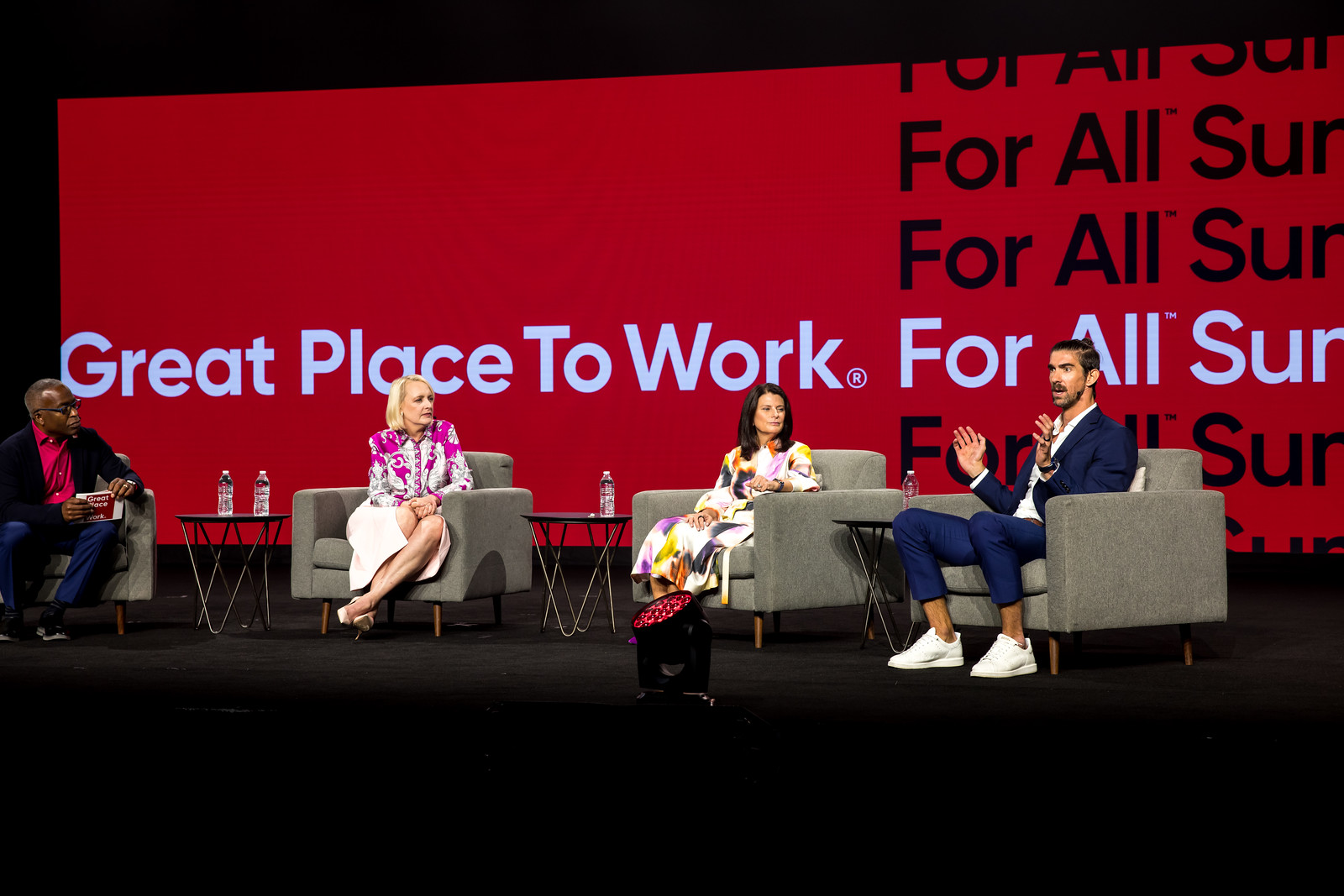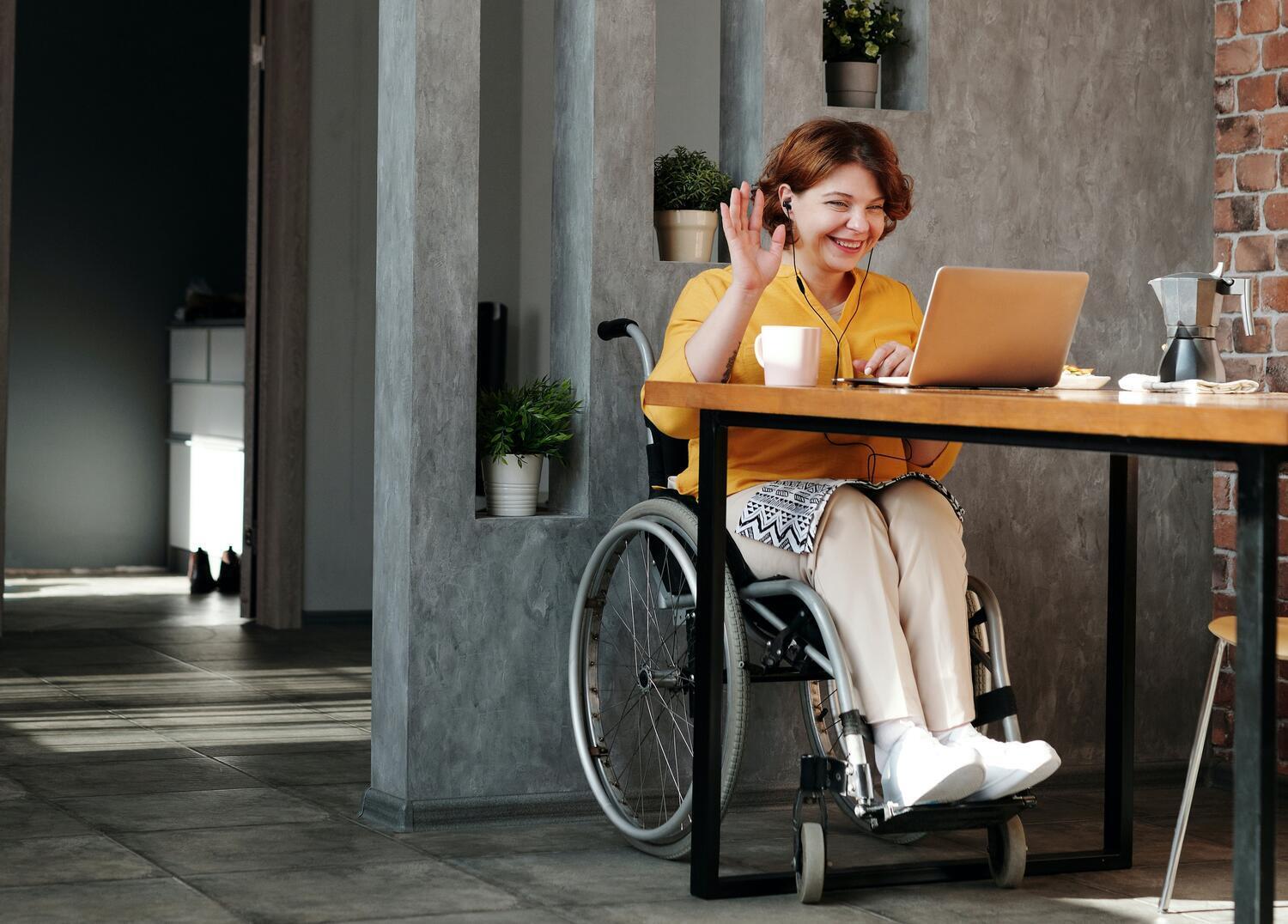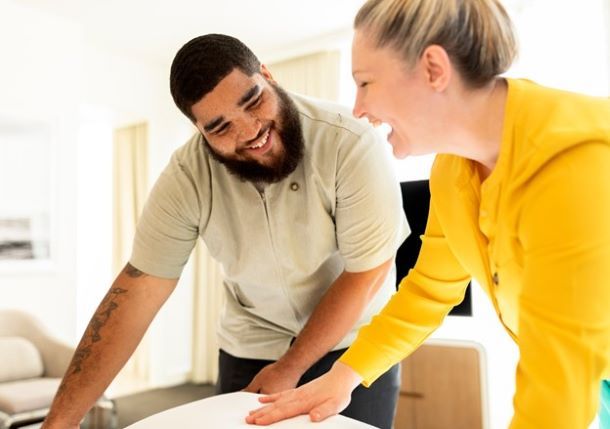Company Culture, Employee Well-being, Training & Development
We dive into how The Wonderful Company, one of the Fortune 100 Best Workplaces to Work For®, has transformed the rural community of Lost Hills, California, into a thriving place to work and live on this episode of the Better podcast.
Stephen Howe, EVP of human resources and chief financial officer, discusses how the company is making a positive impact on employees' lives and their communities through innovative programs and a commitment to sustainability. This includes providing free healthcare, healthy meals, and making significant investments in community infrastructure.
On supporting employee wellness:
Through all of our extensive wellness efforts since 2015, we have decreased pre-diabetes amongst our employee population by more than 50%. We've got more work to do, but it’s had a major transformative impact:
- Our chief medical officer, Dr. Larry Wolk, oversees five wellness clinics in each of the areas in the Central Valley where we have major operations, and a mobile health clinic to cover areas where we don't have a high concentration of people.
- We staff bilingual doctors and nurses who provide primary healthcare, mental health support, and other wellness services to our employees and their families, and we don’t charge them for those services.
- We have healthy onsite cafeterias in each of our major locations and provide healthy subsidized meals for our staff when they're at work. We also offer healthy meal kits that they can take home. We have fruit and vegetable stands for our employees as well because some parts of the Central Valley are food deserts, and that allows them to buy fresh fruits and vegetables that are subsidized so they can take them home and share with their family,
- Each of our major locations has onsite gyms so people can work out before work, during a break, or after work.
On the turnaround story of Lost Hills, California:
This effort was really the brainchild of our co-owner, Lynda Resnick, and she wanted to find a way to meaningfully give back, given all the success that she has had, and she decided to start with Lost Hills because over 50% of households have a Wonderful employee, and she recognized that this was a town that really was lost.
Nobody cared about Lost Hills. It was a working class, largely Spanish-speaking, dusty, small, rural town. It was rundown, but it was filled with amazing people who just needed to be given a chance and an opportunity, and Lynda wanted to help. She started by listening. She didn't go in and say, "Hey, I've got all the answers."
And that's where our research team came in, led by one of our key executives, Amy Snow. They got involved and together with Lynda, they interviewed the residents to understand what they needed, what they wanted, and what the problems were. And over the past decade, through many people's hard work, and Lynda's leadership, we have transformed that town. If you went and saw it today versus 10 years ago, it looks very different. We've invested over $90 million into Lost Hills.
On making work meaningful for hourly workers:
We have a program called WOW, our Wonderful Way of Work, and the idea is to give all employees, especially frontline employees, training and tools to solve the problems that they see and encounter at work. Senior executives like me, we only see some of the problems a company faces. They tend to be big ones. They may be cross-cutting ones across multiple groups, but we don't really see any problems within a team where candidly, most of the value is being added.
What this does is it allows everyone to solve the problems that they find at work, and it allows us a standard way to do that and to communicate that across the company.
So we have a WOW Global Competition where all the WOW teams throughout the globe get together, and we pick the best couple of projects. Last time, we gave them a trip to Hawaii. A team from the Central Valley won, and a team from Mexico won, and they then went to Hawaii and had a great time.
A second area that gives a sense of meaning for employees is our Wonderful Giving program. As part of our place-based giving approach, Lynda and Stuart Resnick grant every full-time Wonderful employee up to $1,000 to give to a nonprofit of their choice, and they'll match an additional $1,000 if someone wants to give their own money.
On the importance of listening:
One of the things I think I've been working on in my career is focusing on listening. I'll listen to WOW presentations once a month and I'll spend an hour or so with my teams listening to their finished WOW presentations.
But if it's even better if you can just have the other person do it, and you can watch and cheer them on. If you do that successfully, you'll find that people over time will take more initiative and they'll do more on their own, and that's the way you want it as a leader.
Welcome to Better by Great Place To Work, the global authority on workplace culture. I'm your host, Roula Amire, Content Director at Great Place To Work. On today's episode, we talk about how one company has created a great place to live for its workers, and it's remarkable. I'm talking about The Wonderful Company. Yes, that's their name, and you've likely had one of their healthy products. FIJI Water, Wonderful Pistachios, POM juice, those are some of my favorites. I spoke with Steve Howe, Chief Financial Officer and EVP of HR, and he shared the story of what's happened in Lost Hills, a rural community in California Central Valley, which is one of the poorest in the country, and it's where the majority of their employees live and work. I'll let Steve tell you what's happened there, but it is extremely inspirational. You'll also hear how innovation and meaningful work plays such a big role for hourly workers and why that's so important to their business. You're in for a great episode. Steve, welcome to the podcast.
Steve Howe (01:29):
Thank you very much.
Roula Amire (01:30):
I'm going to make an assumption right off the bat of what people say to you when you tell them you work at The Wonderful Company, because I'm sure it's what happens when I tell people I work at Great Place To Work, which is, is it really wonderful?
Steve Howe (01:44):
The Wonderful Company is really wonderful. It's great to work at a company that has natural, good-for-you, healthy, high-end products, so I think it starts with the products that we offer. We are very careful about what products we sell people. We want to make sure, as I said, they're healthy, they're natural, they're good for you, and also they're good for the planet because we also want to do it the right way. We want to farm the right way, in a very sustainable way. We have a big commitment to sustainability. The Resnicks, who own The Wonderful Company, have been incredibly generous with institutions that support the environment, including Caltech.
(02:21):
So all the philanthropy, I think The Wonderful Company and the Resnicks have committed about $2.5 billion, which is just an amazing amount of philanthropy that they've undertaken. I think that makes us wonderful. And the third thing I think that makes us wonderful is the people. I come to work every day surrounded by great colleagues, and fellow executives are terrific. Everybody I work with, we really have high-quality people. So I think it's those three things. I think it's the products, it's the philanthropy, and it's the people.
Roula Amire (02:49):
So let's talk about The Wonderful Company, as we've already started to do. You are one of the 100 best companies to work for in 2024 for the first time, so welcome to the list.
Steve Howe (02:58):
Thank you. We're quite honored and we're very excited.
Roula Amire (03:00):
Many of us, actually, half of us in the US have purchased a product from The Wonderful Company. Can you share a few of those with us?
Steve Howe (03:08):
Sure. Our products include Wonderful Pistachios, which are delicious pistachios. We have Wonderful Halos, which are a seedless mandarin that's easy to peel. We have Wonderful Seedless Lemons, which we're just starting to come out with. I've always wanted a lemon without seeds. Now the world has one-
Roula Amire (03:27):
That's going to make all our lives so much easier.
Steve Howe (03:31):
Absolutely. Yeah, you don't have to cut the lemon and then take out all the seeds, so that's a great product. POM Wonderful pomegranates and POM Wonderful pomegranate juice and juice blends and teas are also our products. FIJI Water is arguably our most famous product. Everybody knows FIJI Water. It is the world's best water, and yes, it really does come from Fiji. Speaking of questions, I often get that question. Teleflora, so if you ever need to send flowers to anyone, go to teleflora.com and we'll be sure to help you get some flowers sent.
Roula Amire (04:04):
Most of those products are grown in the Central Valley of California, which is one of the poorest regions in the country, and many of your employees live and work there. People in this area don't have access to the healthy products and produce that's at the core of your brand. With that said, how do you support your employees in terms of their health and wellness?
Steve Howe (04:26):
This has been a big focus for us. We have a chief medical officer, Dr. Larry Wolk. He previously was the chief medical officer for the state of Colorado. We have built, and he oversees five wellness clinics in each of the areas in the Central Valley where we have major operations, and a mobile health clinic to cover the areas where we don't have a high concentration of people. The mobile clinic moves around. And we staff bilingual doctors and nurses who provide primary healthcare, mental health support, and other wellness services to all our employees and their families, and we charge our employees and their families for those services nothing.
Roula Amire (05:02):
Zero?
Steve Howe (05:03):
Zero. It's all free. All free healthcare. In addition, we have healthy onsite cafeterias in each of our major locations, provide healthy subsidized meals for our staff when they're at work. We also offer healthy meal kits if they want to buy a meal kit. And these are subsidized as well, that they can then take home. And then we have fruit and vegetable stands for our employees as well because some of these parts in the Central Valley are what people call a food desert, and that allows them to buy fresh fruits and vegetables that are subsidized so that they can take home and share those with their family. We also try to... In the do-no-harm category. So we visited, what beverages do we offer people at work? And we pulled out all the sodas and energy drinks, and so we only offer healthy beverages at each of our locations.
(05:48):
Each of our major locations have onsite gyms that are also staffed so that people can work out before work or during the break or after work. Through all of these efforts, extensive wellness efforts since 2015, we have decreased pre-diabetes amongst our employee population by more than 50%. So it's really had just a major transformative impact, but we've got more work to do. We're going to stick with it. But we're trying to move upstream, we're trying to be preventative, or we're trying to address issues at their core with diet and lifestyle and working out and living a healthy lifestyle, and we are literally helping our employees and their families live longer, healthier, and more productive lives. And we think it's good for them, and we think it's good for the company.
Roula Amire (06:32):
Right. Creating a great place to work in this case is also creating a great place to live. Not every company can set up wellness clinics, for example, but they can give back to their communities in other ways. Are there any tips or lessons learned you could share with those listeners who, they can't? They want to improve the health and wellness of their employees, but they can't go to the extent of building clinics? What's the fundamental lesson there? I'm assuming it's know your people, know what they need?
Steve Howe (07:03):
Well, the first lesson I would say is it's really hard. This is not easy to do, I think, what we are doing. And even companies that build clinics... And when we started this effort, we interviewed... There are a bunch of vendors in the space of people who will set up clinics for companies. We went through it and I thought, these are clinic options for people who don't really care what the outcomes are. They're going through the motions. And I think a lot of times, you can see corporate clinics and they're there, but are they really helping? Are they really looking at the outcomes? Are they really driving progress? And I think that's the real genius of Lynda Resnick, is she's always pushing for, what are the outcomes? Are we really making a difference? And I think that that's really the lesson learned. You have to push for that, and it is not easy. It is very hard. I think that's the first conclusion we've come to.
Roula Amire (07:54):
Yeah. I want to talk about the Lost Hills community and what you've done there. I'll start with the result and you can fill in the blanks.
Steve Howe (08:00):
Okay.
Roula Amire (08:00):
Lost Hills is in the Central Valley of California. Over half the homes have at least one Wonderful Company employee living there. You went door to door and asked how you could best support the community. Initially, the word cloud from the focus groups you met with, I believe, had words like dirty, hopeless, afraid, no opportunities. Now the words are tranquility, safety, fun. What happened?
Steve Howe (08:27):
This effort was really the brainchild of our co-owner, Lynda Resnick, and she wanted to find a way to meaningfully give back, given all the success that she has had, and she decided to start with Lost Hills because of the reasons you cited, that it has such a big percentage of over 50% of households have a Wonderful employee, and she also recognized at the time that this was a town that really was lost. Nobody cared about Lost Hills. It was a working class, largely Spanish-speaking, dusty, small, rural town. It was rundown, it could be scary, but it was filled with amazing people who just needed to be given a chance and an opportunity, and Lynda wanted to help, and she started by listening. She didn't go in and say, "Hey, I've got all the answers. Listen to me." She started by talking to the people of Lost Hills.
(09:15):
And that's where our research team came in, led by one of our key executives, Amy Snow. They got involved and together with Lynda, they interviewed the residents to understand what they needed and what they wanted and what the problems were. And over the past decade, through many people's hard work, and again, Lynda's leadership, we have transformed that town. If you went and saw it today versus 10 years ago, it looks very different. And we've invested over $90 million in that town of Lost Hills, and it's gone to lights, sidewalks, bus shelters, storm drains for when it rains. The town has a beautiful new community center, which is where we got started with a basketball court and two of the best soccer fields in the area, because people there love to play soccer. It's got a mile-long walkway and a new gym.
(10:00):
Across the street from that, we built a beautiful new school called Wonderful College Prep Academy, with its own healthy kitchen for food for the students and a wellness center to provide healthcare for students and their families. And we've built over 100 homes, some single-family homes, some multifamily town homes for working families with heavily subsidized rents or sale prices, so that people can be homeowners and they can live the American dream. On top of all of that, we've recently built a magnificent bridge over a highway that separates where the school and some of the housing is and where the park is, and that bridge now connects the town so you can safely cross the road to get to the park. So it's really been a huge transformational effort, and there was an internal video Lynda and her team did a while ago called Finding Lost Hills, and Lost Hills really has been found.
Roula Amire (10:53):
How long did this transformation... Is this over a period of how many years?
Steve Howe (10:59):
It's really been over a decade.
Roula Amire (11:00):
Over a decade? Okay.
Steve Howe (11:01):
Yeah, yeah.
Roula Amire (11:02):
Well, that's incredible.
Steve Howe (11:03):
Yeah, and it's big effort, and I think it's a huge source of pride for me as an employee-
Roula Amire (11:10):
Oh, sure.
Steve Howe (11:11):
... to get to see this great work that we're doing in the lives that are being changed, the healthcare that's being provided, the education that's being provided. That's why when you asked me, "Is The Wonderful Company really Wonderful?" philanthropy is a big driver behind that.
Roula Amire (11:24):
Mm-hmm. So let's talk about your employees a little bit more. The majority of your workers are hourly, and our research shows that about 50% of hourly workers at a typical or an average company, meaning not a great workplace, in manufacturing specifically, believe their work has meaning, compared with 75% of hourly workers at the best workplaces in manufacturing. So that tells us that it's more than possible for an hourly worker to have a sense of purpose in their work. What do you do to foster a sense of meaning and purpose in your hourly workers?
Steve Howe (11:56):
We have a program called WOW. It's the brainchild of our CEO and co-owner, Stuart Resnick. He wanted to create a bottoms-up program to continuously improve TWC, and we called it WOW, and that stood for War on Waste. But what we found as we got into it, it was so much more than waste reduction. It was employee safety, it was food safety, it was quality. So we changed the acronym to mean Way of Work. So WOW is now our Wonderful Way of Work, and the idea is to give all employees, especially frontline employees, training and tools to solve the problems that they see and encounter at work. Senior execs like me, we only see some of the problems a company faces. They tend to be big ones. They may be cross-cutting ones across multiple groups, but we don't really see any problems within a team where candidly, most of the value is being added.
(12:47):
And so this allows us to put together a process to identify those problems and in a standard way, solve those problems. And what it also teaches everyone is that look, everyone is in charge of solving problems that they find. We started with training. We developed WOW training to help people write a problem statement, and we provided tools that helped people then solve those problems in groups that we call WOW teams. Those are set up with coaches. We have about 275 coaches throughout the enterprise that are certified. I happen to be a WOW coach. I went through the certification myself. And those coaches help lead the teams through their problem-solving efforts. And we're now in our third generation of WOW training. It's called WOW 3.0. Next year, I'm proud to say we'll launch WOW 4.0, so we're not stopping. We're, keep going. We really like what it's delivering.
(13:37):
What this does is it allows everyone to solve the problems that they find at work, and it allows us a standard way to do that and standard way to communicate that across the company. And I'll give you an example of one project just to bring it home to life. So we are a farming company and some of the machinery is big, and it's complex and it's heavy, and it operates in an area where there's no roads, it's not paved roads, it's fields with sticks and certainly trees, branches and dirt and rocks, and sometimes you get flat tires. And the old way of dealing it was then you had to call somebody, they'd have to show up with three different jacks to get the equipment raised so that we could change the tire. And we had a team of frontline workers say, "Look, this is a very inefficient way to do it," and they brainstorm solutions.
(14:25):
And the solution that they brainstormed was to have built into the piece of equipment a lift, a hydraulic lift that could lift the truck just embedded in it, so you didn't need any external jacks. Because the other problem with the external jacks is you're often putting these in uneven terrain, and what if one slips or falls off? Somebody could get hurt, which is the last thing we want. So this team solved the problem. They came up with this new way to fix tires. Now tires get fixed, instead of one to three hours, it's 30 minutes, and it's a safer way to do it. So it's better for everybody because when you have a crew during harvest, when you're working 24/7 down for one to three hours, that's not good for the company. And if you're doing the tire fixing in a less safe way, that's not good for anybody.
(15:08):
So that's an example of a frontline team that identified a problem, were empowered to go and solve it. And the last thing I'll say on this topic is we also have fun things with this. So we have a WOW Global Competition where all the wow teams throughout the globe get together and we pick the best couple of projects. And last time, we gave them a trip to Hawaii. It was fun. So a team from the Central Valley won, and a team from Mexico won, and they then went to Hawaii and had a great time. And this year, we're doing our second ever WOW Global Competition, so we'll see how that goes. I talked a bunch about WOW, but the second area I'd call out that I think gives a sense of meaning for employees is our Wonderful Giving program.
(15:50):
As part of our place-based giving approach, Lynn and Stuart Resnick grant every full-time Wonderful employee up to $1,000 to give to a nonprofit of their choice, and then they'll also match an additional $1,000 if someone wants to give their own money. And so far through this program of employees directing exactly the charity or nonprofit that the money goes, The Wonderful Company has donated over $60 million. And because we do it locally, that further connects our employees to their community and to the causes that they support and they find drive, meaning, and value in their local communities. I know I always look forward to giving away somebody else's money, and I'm sure they do too-
Roula Amire (16:29):
Even as a CFO. It's a great call-out because it's not the company that's deciding the charity that-
Steve Howe (16:30):
Exactly.
Roula Amire (16:35):
... they're donating to. It's, employees themselves get to pick. Also, you talked about problem-solving and employees getting to make suggestions to work on problems, and to get rewarded for them and win trips and do things, so I think the takeaway for listeners and for everyone trying to improve their workplaces, to involve your people, listen to them, and not only act on what they say but let them just do things.
Steve Howe (17:00):
Yeah, exactly. It is important to listen, and I try to spend... One of the things I think I've been working on in my career is focusing on listening. I'll listen to WOW presentations once a month and I'll spend an hour or so with my teams listening to their finished WOW presentations. But if it's even better if you can just have the other person do it, and you can watch and you can cheer them on. And I think if you do that successfully, you'll find people, over time, they'll take more initiative and they'll do more on their own, and that's the way you want it as a leader,
Roula Amire (17:31):
I think employees may not do that because they think, well, my idea is not going to go anywhere. They're not going to listen to it, so why bother?
Steve Howe (17:38):
Yeah. No, that's the worst. The, why bother? The WOW tools have to be embedded in our philosophy. Our philosophy, yes, we want you to bother. We want you to make your work place safer. We want you to make it more effective. Well, we want you to make it more efficient. And if you see something wrong, we expect you to call it out, and we will help you and provide you the tools and the time to solve that problem. And that's a mission, not something that you can accomplish, but you got to constantly be working on that and getting that message out throughout the organization.
Roula Amire (18:09):
Right. That's an innovative culture, where it's rewarded and bred and fostered. It's not-
Steve Howe (18:14):
All starts with the culture. Yeah-
Roula Amire (18:15):
Exactly.
Steve Howe (18:16):
... you have to have the culture that supports it. Otherwise, it doesn't work.
Roula Amire (18:24):
Hey everyone, if you like listening to the podcast, then don't miss the Great Place To Work For All Summit in April, in Las Vegas. Well, you will learn from the best in the world, meet more than 1,500 leaders and get insights on what the data says drives the business success, and that's people and culture. I promise, you'll leave inspired and ready to transform your workplace. Register today. Use the code "better" to save $200 off registration. Link in code or in the episode bio. Don't miss out, and I'll see you there. What advice would you go back and give your younger self?
Steve Howe (19:06):
My younger self?
Roula Amire (19:07):
Yes.
Steve Howe (19:07):
Look, I think I would worry less-
Roula Amire (19:10):
In life or at work, or everything?
Steve Howe (19:12):
Probably everything, but certainly at work. I think things tend to work out. John Wooden, who I admire greatly, has a saying, "Things work out the best for those who make the best of the way things work out," and I think that's so true. And I'm a terrible sleeper to begin with, and if I think back to all my sleepless nights of worrying about this, that, or the other thing, I think back, I probably could have just slept soundly all those nights. I didn't need to worry about it. Those sleepless nights were kind of silly. So I think that's what I would pick, I would worry less. Things are going to work out.
Roula Amire (19:44):
Are you sleeping better now?
Steve Howe (19:45):
No, I'm a terrible sleeper. No. If you have any sleep tips, we can cover those offline. Surely my sleeping's a disaster.
Roula Amire (19:51):
I do have a few sleep tips, so we'll save that-
Steve Howe (19:53):
Okay, good. Good.
Roula Amire (19:54):
Is there a book or podcast you'd recommend to your peers?
Steve Howe (19:57):
I'll go podcast first and then I'll go books, and I love to read. So my friend, Don Yaeger, has a great podcast called Corporate Competitor. Maybe I'm just saying that because I've been on it, but I think it's great. It's about corporate athletes and the lessons you learn from sports and how you apply them in the work environment. And it makes sense, because they're both team-based environments.
Roula Amire (20:17):
Yeah.
Steve Howe (20:17):
So I would encourage any listeners here to give Corporate Competitor a try. I think it's got a lot of useful advice, a lot of interesting people on it, present company excluded, and his team does a great job of packaging it. So I'll pick that for podcasts. In terms of reading, my advice is just read whatever interests you, whatever you're fascinated-
Roula Amire (20:18):
Mm-hmm, just read.
Steve Howe (20:37):
Just read. Read something. As I mentioned, I read all the time. My system is, I have a pile of books. I'm always buying books, and when I get a book, I put it in the pile. And when I finish a book, I go to the pile and then I pick out the next book. And the pile seems to grow and take up an ever larger... Because I buy them faster than I can read them. But it's great to have a pile. I'm currently reading the Elon Musk biography by Walter Isaacson. I've actually had the book for a while, but it needed to work its way to the top of the pile. I'm probably two-thirds of the way done, and I think it's very au courant given... I feel like when I read the newspaper, Elon Musk is in half the articles sometimes, it feels like.
(21:14):
But in a general... In reading, I go through stages. I might read a lot of non-fiction for a while, then I might read a lot of fiction, and I'll go through phases. Like I went through a phase where I was reading everything Kurt Vonnegut wrote. But I also read a lot of history. I've read, I think, almost everything Jared Diamond's wrote. He wrote Guns, Germs, and Steel, and I think that book is pure genius. I would highly recommend it to anyone who's even remotely interested in the subject matter. And my advice would be to keep it eclectic, mix it up. If you just read business books, business books, you get the point in the first 20, 50 pages, and then the next 200 sort of repeats the first 20 to 50, I often find. You'll bore yourself to tears. So mix it up and read what you love and read what you enjoy, and that way you'll read more.
Roula Amire (21:59):
Are you a Kindle guy?
Steve Howe (22:00):
I'm a hard copy-
Roula Amire (22:01):
Your books stacking up and-
Steve Howe (22:02):
Yeah-
Roula Amire (22:03):
... taking up space in the room-
Steve Howe (22:04):
I need to move into the 21st century, I know, I know.
Roula Amire (22:07):
I like to pick a book up as well, so... We're in the minority though. We're getting outnumbered.
Steve Howe (22:12):
Yeah, it's okay. Look, progress has to move forward. I just need to figure out if I can move forward with it.
Roula Amire (22:17):
What has been the biggest challenge you faced in the last year, or a challenge, either personally or professionally? What did you learn about yourself?
Steve Howe (22:26):
I've had roughly give or take the same functional job at The Wonderful Company for the past decade now. I need to keep it fresh, and so I'm always looking out for a new challenge. And the current one that I'm focused on, to be candid, is bringing data to our people function. People functions in generally don't use a ton of data. Sometimes the people who are attracted to that function, they're more interested in people than data, so they don't initially gravitate towards data. People are our most important resource at Wonderful, and data can help us get the most out of that resource. For example, if I walk into a manager's office and I give them the analytics of the most likely people in their department that may quit in the last 12 months, because I've run an algorithm and I know based on tenure, time to last promotion, what functional area is, what level of the company they are, et cetera, "These are the people who may quit, they may not, but they're most likely to," that's very valuable.
(23:22):
And then I can say to the manager, "Do you care?" And the manager could say, "No, I don't," or, "Yes, I do," probably more obviously, and if that's the case, then I can say to the manager, "Well, look, for this level of the company, here are the five tactics that you can do. Send them to this training port and give them a new assignment, whatever it is to help continue to engage them at work so they're less likely to turn over." Those would be examples of me providing and our people function providing data to leaders of the company. That can be very, very valuable to those managers, and I'd like to see us move towards that. And that's the vision. We are not there. We are just in the very beginning stages of trying to understand this data, but it's something that I'm really excited about now that we're working on now.
(24:07):
And I know it won't be quick, and I know it won't be easy, but we spent the last several years getting all our people information into one system, and now I'm like, okay, now we're going to use the system to provide real value for the company. So come full circle on your original question, I'm always looking for the next challenge, what's the next hill we could take that will add value for the company, that will move us to the next level in our performance in each of the functional areas I oversee? And I'm looking for the next new challenge. So that's one I'm very focused on at the moment.
Roula Amire (24:37):
Might I recommend data from Great Place To Work?
Steve Howe (24:40):
Yeah, absolutely-
Roula Amire (24:41):
As another source of-
Steve Howe (24:42):
Absolutely. That's why we're so excited to be partnering with you guys. I think that's going to be extremely helpful for us, so thank you.
Roula Amire (24:49):
How do you create a sense of well-being for yourself? You wear a lot of hats, you have a lot of responsibility, you're a busy guy. How do you wind down and recharge?
Steve Howe (24:58):
I recharge with my family. I have a wonderful wife and three terrific boys, and spending time with them is my escape. Pretty much anything we'll do spending time, but we love to play golf, go fish. I coach their sports teams. Pretty much anything with them is what I love to do. They have their busy lives, my wife and I have our busy lives, but whoever's around for family dinner, we try to have a family dinner every night. Speaking of challenges, one of the challenges for me is my oldest boy is about to go to college, and so-
Roula Amire (25:29):
The first one?
Steve Howe (25:30):
The first one-
Roula Amire (25:30):
Yeah, the oldest.
Steve Howe (25:30):
... and then the second one will go and the third one will go. And so, they have to start their own lives and leave the nest, and that's as it should be, but that will be a challenge for me because I'll need to find something else to do than hang out with them. So that'll be the personal challenge I'll have to figure out, but I look forward to it.
Roula Amire (25:48):
Excellent. Might I recommend fly fishing because that seems to be a-
Steve Howe (25:52):
Oh, I love to fly fish. Yeah.
Roula Amire (25:54):
... popular sport. Do you fly fish?
Steve Howe (25:55):
I do, yeah. Yeah.
Roula Amire (25:56):
And why do you love it?
Steve Howe (25:58):
Well, first of all, it's very peaceful. There's a reason why they call it fishing and not catching, because it's hard to catch fish on a fly. It sort of developed as the way to give the fish the best chance. It's a little similar to golf in that you've got a motion to it. You're always doing something. You're not just sitting, watching a bobber. You're casting or reeling in and trying to hit a perfect spot with the cast. And then it's windy and sometimes the fish, darn it, don't bite, and sometimes they do, and then it gets very exciting. So it's very peaceful and contemplative, and then you get a bite, and then it's sheer terror-
Roula Amire (26:33):
Yeah. Then it's action.
Steve Howe (26:33):
Your heart starts pumping and your blood pressure rises, the adrenaline hits, and then you're trying to keep the fish on-
Roula Amire (26:40):
Yeah. Well, one of these days-
Steve Howe (26:42):
And then you let the fish go.
Roula Amire (26:43):
... I'm going to try it and report back.
Steve Howe (26:45):
Yeah, you should definitely do it.
Roula Amire (26:47):
Yeah.
Steve Howe (26:47):
Definitely do it. Go with a guide so that they'll help you out and make sure you have the right flies and tell you where to cast, because if you just show up on a river by yourself, it can be challenging.
Roula Amire (26:57):
Yeah. Well, Steve, thank you for joining us. Thanks for the conversation-
Steve Howe (27:02):
Yeah. Thank you for having me. Listen, we're extremely excited to be partnered with the Great Place To Work. I'm just really happy to be here and happy to participate in the podcast, so thank you very much.
Roula Amire (27:11):
Thanks again. Thanks for listening. If you enjoyed today's podcast, please leave a five-star rating, write a review, and subscribe so you don't miss an episode. You can stream this in previous episodes wherever podcasts are available.


